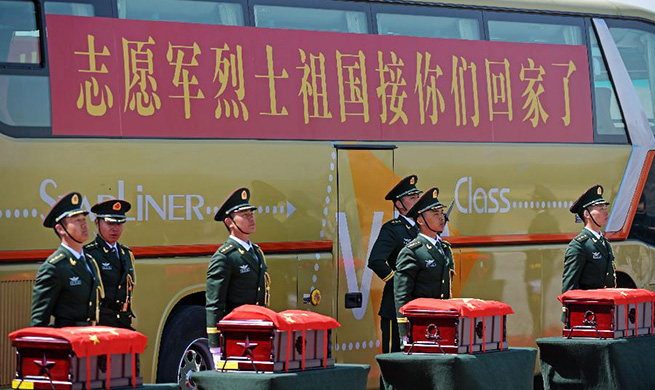BEIJING, April 4 (Xinhua) -- The North Atlantic Treaty Organization (NATO) turns 70 on Thursday. As one of the longest-lived military alliances in modern history, perhaps it's a good time for NATO to pause and ponder on its path.
When it was first established back in 1949, NATO performed as a collective defense alliance to counter the Soviet Union and its satellite countries then. Following the end of the Cold War, it continues to function as a transatlantic security bloc.
Over the decades NATO has experienced various challenges, from the internal disputes over the Suez Crisis in 1956 to France's 1966 exit from its military command, from the Europe missile crisis in the 1980s to the Bosnia crisis in the 1990s.
Now, almost three decades after the fall of the Berlin Wall, NATO still finds itself trapped. In fact, as former U.S. representatives to NATO Douglas Lute and Nicholas Burns put it in a recent Harvard report, the alliance is facing perhaps "the most daunting and complex set of challenges in its history."
This time, that most significant test comes from a skeptical Washington.
Claiming the United States being ripped off, the current U.S. government has been hyping up the talk of burden-sharing in a bid to pressure its European allies to spend more on defense. The transactional approach alerted Europe, leading to German Chancellor Angela Merkel's widely quoted remarks, "the times when we could unconditionally rely on others are past."
Diverging interests within the bloc is another major hurdle. NATO has expanded from a 12-member grouping in the first place to 29, anticipating North Macedonia as the 30th one soon. Widening geopolitical landscape makes it extremely hard to seek common goals. As eastern European members view deterrence against Russia their top priority, others find it not imperative to invest considerable national resources in things that yield little in return.
The third challenge comes from a troubling fact that some major European capitals are scrambling to face down their respective domestic problems. London is struggling to find a viable path out of the European Union while Paris is combating rising populism in the form of noisy yellow vests movement.
So far, there have been few signs that NATO can tackle these problems properly.
An alarming tendency is that NATO now seems to have shifted its focus back to its original to confront Russia. Its realignment to the east has intensified since 2014 Crimea incident amid rising rhetoric about the return of the great power politics.
But many see NATO's moves as arguably self-fulfilling, as its presence among Moscow's immediate neighbors would be regarded as provocative and therefore invites dangerous counter-actions.
A Brookings report examined 63 major military alliances over the last 500 years, finding that 47 has disintegrated. Celebrating its longevity, NATO also needs to reassess its purpose and clarify its path forward.
If NATO seeks to help build peace and stability, regionally or worldwide at large, it should not make itself a source of problems or provoke others in the name of safeguarding security. Transforming itself from a legacy of the Cold War to a modern multilateral pro-development body might be a good idea.
















